“It’s a classic”
“What an influential novel”
“This is high art”
“You’ve got to read these 10 million classics before you die”
“Welcome to English class”
We’ve all heard it before. Some geriatric white dude wrote a novel about important things™ hundreds of years ago and we’re expected to care. In some cases, we even have to read it, due to the unfeeling cruelty of our education. When we finally start to read this “lifechanging™” book, all that we gain is a desire to sleep.
But all is not lost. While it seems an insane thought, some classics are actually good. And not in the way that some literary snob who appreciates all the artistic intricacies and fancyness thinks so, but just as good books.
Just so you know I’m not talking out of my rectum because I’ve been paid off by Big Literature (I’ll have you know I’m being paid off by the library, which is a notable difference) I’m going to actually tell you about books I’ve actually read. I can tell you from personal experience why you’d want to open up these dusty tomes and why you’ll maybe even end up enjoying them.
However, because I am a sham and a charlatan who hasn’t actually read that many classic books, I have acquired the assistance of some of the other bloggers to supplement my recommendations. They’ll be talking about some of their favourites just like I will.
So! Without further ado (and quite definitely not much ado), let us see which Boring Old People have written Boring Old People Books that are Good Actually™!
William Shakespeare
“Ooooh la dee dah, Shakespeare, aren’t you so fancioux and cultured.”
Yeah, yeah, yeah I get it. Shakespeare is the English literature author that is inevitably inflicted upon innocent youths by the school system. But some of his stuff is like genuinely good. And not just in a prestigious, high class, literary way, but in a genuine “this is enjoyable” way.
Something that can get lost in history about Shakespeare, considering the grand acclaim his works get, is that these plays weren’t made to be some high intellect academic exercise in storytelling. These plays were public entertainment, the ye olde version of tv shows or blockbuster movies. These were made for us plebeians, to amuse the people.
Twelfth Night
Twelfth Night, also known as What You Will, is my personal favourite Shakespeare play. To let you know why, first we need a little context, a history lesson.
Because the past was the worst, ye olde theatre didn’t allow women to be actors, so every character in a play was played by a male. Yes, even the female characters. Often younger boys would be playing women due to their more slight frames and higher voices.
Now why am I bringing this up? Well you see Twelfth Night is all about gender bending weirdness and is generally super queer. When the main character Viola finds herself shipwrecked alone in Illyria, she disguises herself as a man for safety and maybe other reasons who knows. This means our main character is a man (the actor) playing a woman playing a man, hilarious stuff.
The basic conceit of Twelfth Night is that Viola, under the guise Cesario, is sent by the Duke Orsino to woo the mourning Countess Olivia. The problem is Viola does her job too well, making Olivia fall for her, while she is falling in love with Orsino, who has a “great fondness” for his nohomo best guyfriend Cesario. Love triangles abound! There’s also all sorts of juicy romcom shenaniganry: identical twins, secret weddings, doing anything for your “bro”, mistaken identity, pranks, and manipulation. Everything your heart could desire!
Much Ado About Nothing
Do you love enemies to lovers? Are you fond of witty snark battles among people who love to hate to love each other? Why, how about you try Much Ado About Nothing. This play feels so modern in its bantering love interests Benedick and Beatrice, who are tricked by their friends into gradually falling in love. There’s also some other story about this lovey dovey couple of Hero and Claudio but they don’t matter as much. Back to the important bit, look at this delightful dialogue:
BENEDICK : What, my dear Lady Disdain! Are you yet
living?BEATRICE: Is it possible disdain should die while she
hath such meet food to feed it as Signior Benedick?
Courtesy itself must convert to disdain if you come
in her presence.BENEDICK: Then is courtesy a turncoat. But it is certain
I am loved of all ladies, only you excepted; and
I would I could find in my heart that I had not a
hard heart, for truly I love none.BEATRICE : A dear happiness to women. They would
else have been troubled with a pernicious suitor. I
thank God and my cold blood I am of your humor
for that. I had rather hear my dog bark at a crow than a man swear he loves me.
Now, I’m going to say something extremely out of character for a librarian:
Don’t read the book.
“Then what the @#$%&! am I to do then?!” The poor and clueless cry.
Let me finish. So Shakespeare plays are, well, plays, not novels. They are best experienced live. Don’t get me wrong, reading the plays can be great, but sometimes it’s better to watch and/or listen. The problem is that it’s gonna be a rare moment you get to see a production, let alone an exemplary production, in person. Plus that’s expensive, not a very library recommendation. However we do have some recordings of such plays: BBC’s Twelfth Night, BBC’s Much Ado About Nothing and an audiobook version of Much Ado About Nothing. There are lots of versions of these hundreds of years old plays around. If you can get your grabby little hands on it, The Globe’s traditional all male version of Twelfth Night featuring Stephen Fry is really good. Another good choice is a more modern adaptation of Twelfth Night: the film She’s the Man.
Edgar Allan Poe
Once upon a midnight dreary, while I pondered, weak and weary,Over many a quaint and curious volume of forgotten lore—
Now in a bit of a change of pace from fluffy romcoms, is the master of gothic horror himself: Edgar Allan Poe. His stuff is just so delightfully creepy and a must read for any lover of horror and the macabre. In addition to his excellence, this is also the guy who is considered to have invented the detective genre with “The Murders of the Rue Morgue.” Poe wrote short stories, a form I have sung the praises of before, which makes his work easy to pick up for a microdose of fright.
But Poe was no one trick pony, no no. Unsurprising, considering his name, Poe also is famous for his Poetry. Poe’s try is absolutely wonderful, having this brilliant rhythm that practically makes the words flow out of your mouth when reading. Because poetry is excellent as a vocal medium, if you were to read his work I’d suggest reading them out loud, or finding a recording of someone else reading them.
For some odd reason we at the library don’t have any readings of his poetry, but we do have readings of his short stories. Because these tales were written by an old fart, like all the books in this blog, there are many readings available online for free due to the lack of any pesky “public domain”. A personal favourite reading of mine is one of my favourite stories The Tell-Tale Heart, read by the YouTube channel Overly Sarcastic Productions, who also read The Masque of Red Death and other stories.
Whether you are more interested in his short stories or his poetry you can’t go wrong with Poe.
Jane Austen
Pride and Prejudice: It’s funny. REALLY funny. Lizzie Bennet is really relatable as a heroine – she’s smart, has little tolerance for stupidity or men that think they’re better than her. Mr Darcy is HOT. I always find it a quick read, one I can knock over on a rainy afternoon, giggling at the sassiness of it and holding my breath that Lizzie and Darcy stop being such boneheads and finally get together. Jane Austen is the reason that Bridgerton exists too. Extra points if you go on to read Sense and Sensibility, which is just as delightful.
Oscar Wilde
The Importance of Being Earnest : Another book (originally a play) that is really funny. If you like witty wordplay and sharp clapbacks, this one is for you. It’s full of knotty situations that the main characters need to talk their way out of, and a hefty twist towards the end. It can also be interpreted as a bit gay, which is fun too.
Mary Shelley
At age 19, Mary Wollstonecraft Shelley adapted a ghost story she told during a writer’s gathering and turned it into Frankenstein, or the Modern Prometheus, a tale of scientific hubris that results in one of the most iconic monsters ever imagined. While the book’s language is extravagant and the story-within-a-story framing device is a bit of a hurdle, once we meet Victor Frankenstein, a young man who pays a terrible price for his intellectual curiosity, the book fully takes off. It has everything a great genre book should have: action, romance, mystery, suspense, tragedy, even farce, as Victor spends the back third of the book chasing his creation across Europe like the Coyote chasing the Roadrunner, while the monster cruelly taunts Victor all the way. Far from the inarticulate brute of the movies, Frankenstein’s monster himself is a eloquent, sympathetic being; a lurching, nine foot tall wretch who chews out his creator at every opportunity for bringing him into a world that is repulsed by him. It’s an indispensable book if you have any interest in Gothic literature or science fiction (being the earliest example of the genre), and once you read it, you start to see its influence on everything from Blade Runner to Barbie.
Bram Stoker
Dracula: You probably are thinking “Why should I read Dracula? I already know the story” but that is exactly why you should. Even the most faithful of adaptations have significant differences, and the most popular versions omit entire characters and subplots and introduce storylines antithetical to the original text. Dracula by Bram Stoker is not a gothic romance or love triangle, but instead a story told through diary entries and journals, letters, and newspaper articles about a group of people who through determination, research, science, and teamwork manage to bring an end to an ancient and evil being who has come to prey on all they love – at the cost of their sanity and their lives.
-The Dracula Enthusiast, our resident Vampire Expert
Charles Dickens
A Christmas Carol: You probably don’t need any introduction to this story but it is truly worth the read, especially since the festive season is upon us! If you’re in your self-reflective era then A Christmas Carol is basically that but make it ✨Victorian man✨. Scrooge gets confronted with the fact that he hasn’t been on Santa’s “Nice” list for quite a while and realizes (with the help of a few ghosts) that he can be a better person. Basically I love this story because it gives me slim hope that one day billionaires will wake up and donate all their money to the poor, and I guess Christmas is quite fun too.
-Grace
Numerous Authors
One Thousand and One Nights – The Arabian Nights: It has a little bit of everything. If you like stories within stories, you’ve got it. Self-fulfilling prophecies? There’s plenty. Pop culture references before they were pop culture. You betcha (Aladdin is based on one of the stories in this classic). Plus, it’s all framed with the story of one badass heroine trying to escape a murderous maniac by telling him stories interesting enough that he’ll keep her alive till the next dawn. And, if you don’t want to read all the stories you don’t have to. Honestly what more could you ask for?
-Grace
Editor's Note: So The Arabian Nights is written in Arabic, not English, shock horror. This means that any version you read will be a translation, each translation slightly different. You may want to have a look at the multiple options there are, or not, do whatever, I'm not your mum.
Someone, We Assume, We Don’t Actually Know Who
Beowulf: Look, I won’t lie to you. The story is as basic as they come. There’s this dude called Beowulf, he’s a big ol’ guy with big ol’ muscles, and he kills a big ol’ monster called Grendel for the crime of eating 30 Danish party-goers… every day for like 20 years (you would think the Danes might have called in the cavalry a little earlier but I guess they didn’t want to look like lil nerds who couldn’t even take down one monster). Then he kills another big ol’ monster who happens to be Grendel’s mum. Then he gets to sit around being king for a while before he has to kill — you guessed it — a third big ol’ monster.
Except this one is a dragon and it sets him on fire and bites a hole in his neck, thus ending Beowulf’s story (though being the badass he is, being on fire and bleeding out doesn’t prevent him from killing the dragon anyway — his last words are basically “at least show me the sick loot I got for beating this boss” before dramatically dying all over his new pile of gold-plated dinnerware). So if you like monsters, magic, epic journeys and lots of blood and gore, Beowulf is the story for you! It’s basically LOTR but without all the filler.
It’s not all doom and gloom though — the sċop (bard) who wrote this version of the poem down devotes a weird amount of time to dunking on this loser Unferth who keeps trying and failing to talk down to our buddy Beowulf. Not cool, Unferth — in Beowulf’s words, “in helle sċealt werhðo drēogan, þēah þīn wit duge” (basically, “go to hell you big nerd.”) Classy!
Editor's Note: (Haha, imagine, Stephen, the editor, getting edited by moui. Oh how the turns tabled) So Beowulf is a super duper old poem, written in English so old it's called Old English. That means you can't really read the original. "But we read Shakespeare, that's in Old English right? We can vaguely understand that." NON! Shakespeare's stuff is actually written in early modern English, Old English is an entirely different thing. Behold! The first lines of Beowulf, untranslated! I mean, look at this gobbledygook:
Hwæt! Wē Gārdēna in ġeārdagum,þēodcyninga þrym ġefrūnon,hū ðā æþelingas ellen fremedon.Oft Scyld Scēfing sceaþena þrēatum,moneġum mǣġþum meodosetla oftēah,eġsode eorlas, syððan ǣrest wearðfēasceaft funden, he þæs frōfre ġebād,wēox under wolcnum, weorðmyndum þāh,oðþæt him ǣġhwylċ þāra ymbsittendraofer hronrāde hȳran scolde,gomban ġyldan. þæt wæs gōd cyning!
I'm sure you can read that easy peasy. Because such a cool story is hidden behind this witchcraft (what in the world is a þ or a ð??!?!?!??!?!!??!!?) we have to deal with translation. First we have Papa Tolkien's translation because we have to respect our elders and Tolkien was a fricken nerd when it came to language. His version is written poetically, so it's all pretty noises and such. If you just want to read it like a novel, we have this prose version by some rando who's probably a cool guy but didn't happen to practically invent the fantasy genre so he gets no name recognition. There's also a summarised version with illustrations by a lead artist on the "Lord of the Rings" film trilogy. Once again you don't have to do what I say, I'm not your mum, so feel free to find and read whatever version you want, we have plenty more at the library. For all I know maybe you can read Old English and have been looking for some reading recommendations in that language. Super editor's note out!
Happy Reading!

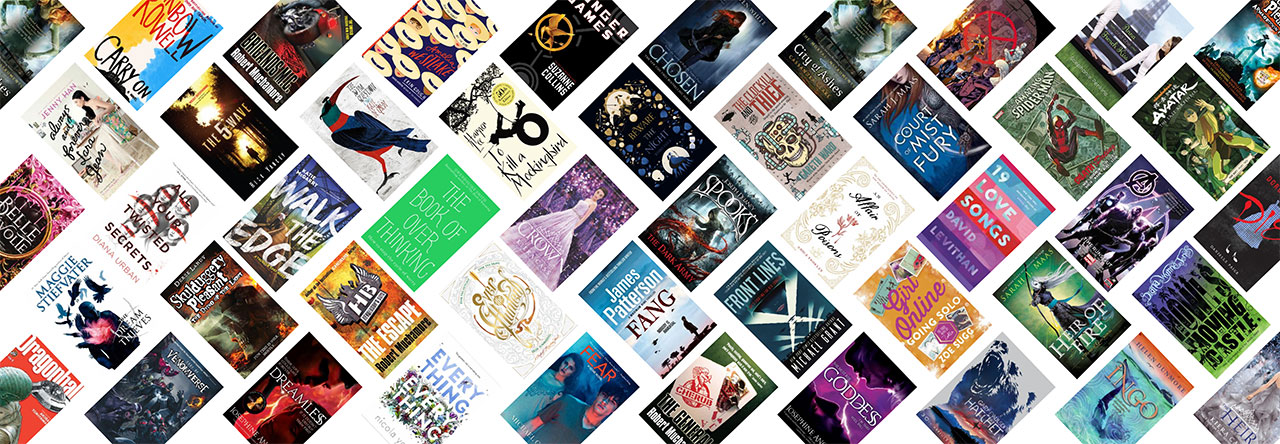


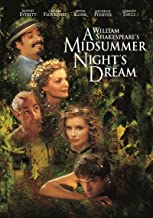
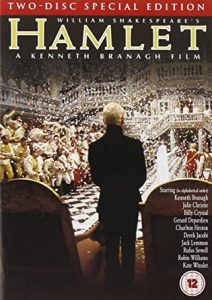

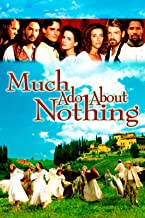
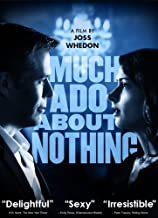
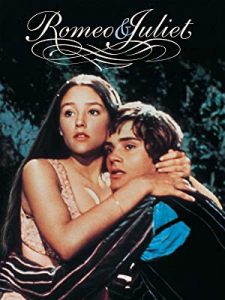
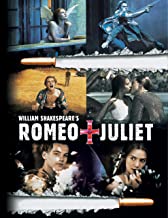
 Exams are coming up, so I’ve been looking through the collection and online for resources to help you revise for your exams. This week we’re looking at Shakespeare. The Bard can be a little hard to get through but there’s plenty to help you out if you need it.
Exams are coming up, so I’ve been looking through the collection and online for resources to help you revise for your exams. This week we’re looking at Shakespeare. The Bard can be a little hard to get through but there’s plenty to help you out if you need it. So Silver Bright
So Silver Bright Dark Parties
Dark Parties Compuls1on
Compuls1on Following Christopher Creed
Following Christopher Creed Lola and the Boy Next Door
Lola and the Boy Next Door Cold Kiss
Cold Kiss Falling for Hamlet
Falling for Hamlet Dark of the Moon
Dark of the Moon
 Wondrous Strange
Wondrous Strange Illyria
Illyria The Jumbee
The Jumbee Cuckoo in the Nest
Cuckoo in the Nest Shakespeare’s Apprentice
Shakespeare’s Apprentice My Invented Life
My Invented Life Saving Juliet
Saving Juliet Malvolio’s Revenge
Malvolio’s Revenge Talk
Talk It has been said that if William Shakespeare were alive today he would be a screenwriter, not a playwright. I don’t know how true that is, but it’s certainly true that his plays translate well to the big screen. If you’re studying Shakespeare at school, often the best place to start with his work is to watch the film adaption; reading them is great but can take some time, and watching them performed isn’t always an option.
It has been said that if William Shakespeare were alive today he would be a screenwriter, not a playwright. I don’t know how true that is, but it’s certainly true that his plays translate well to the big screen. If you’re studying Shakespeare at school, often the best place to start with his work is to watch the film adaption; reading them is great but can take some time, and watching them performed isn’t always an option.
